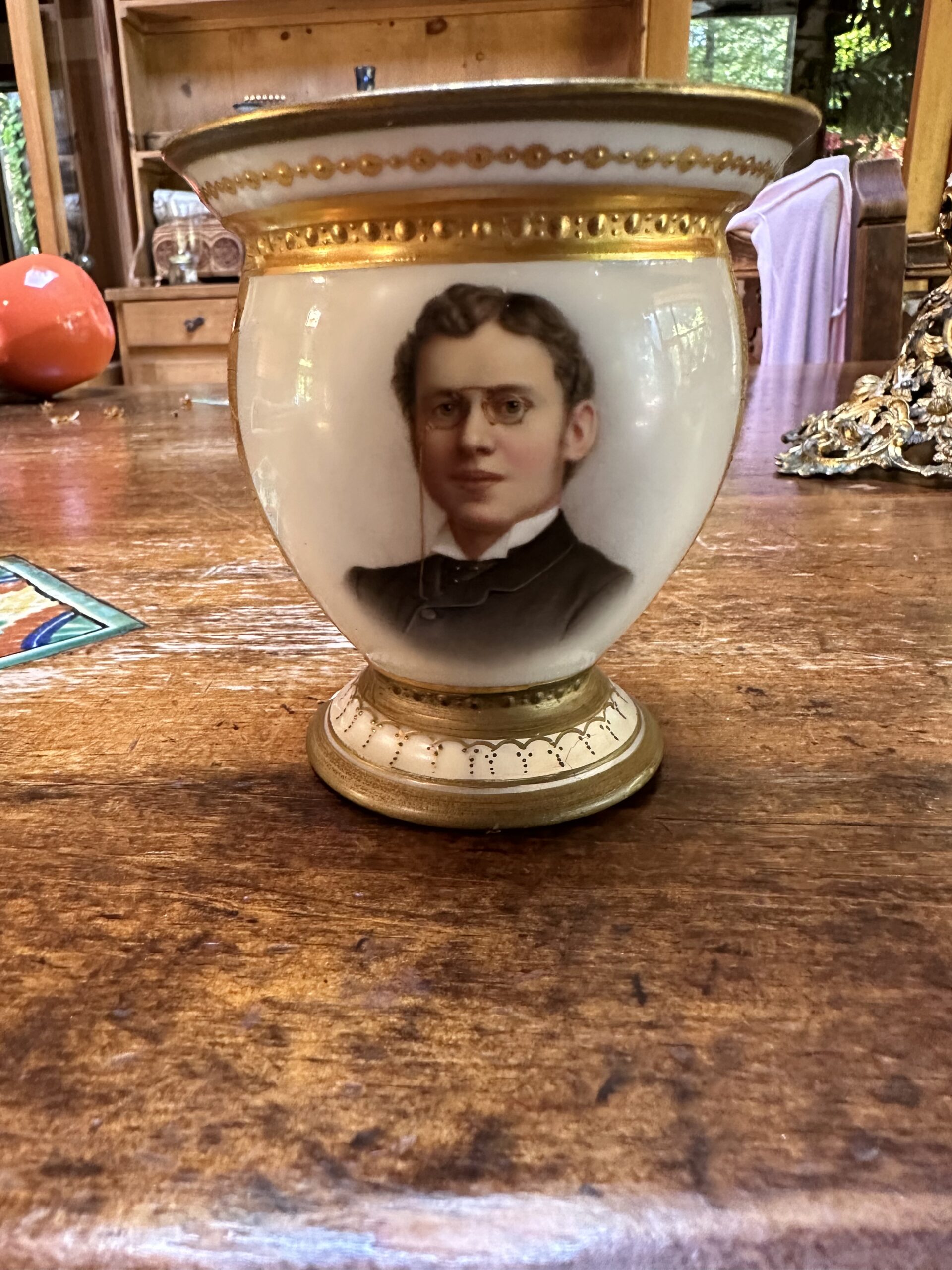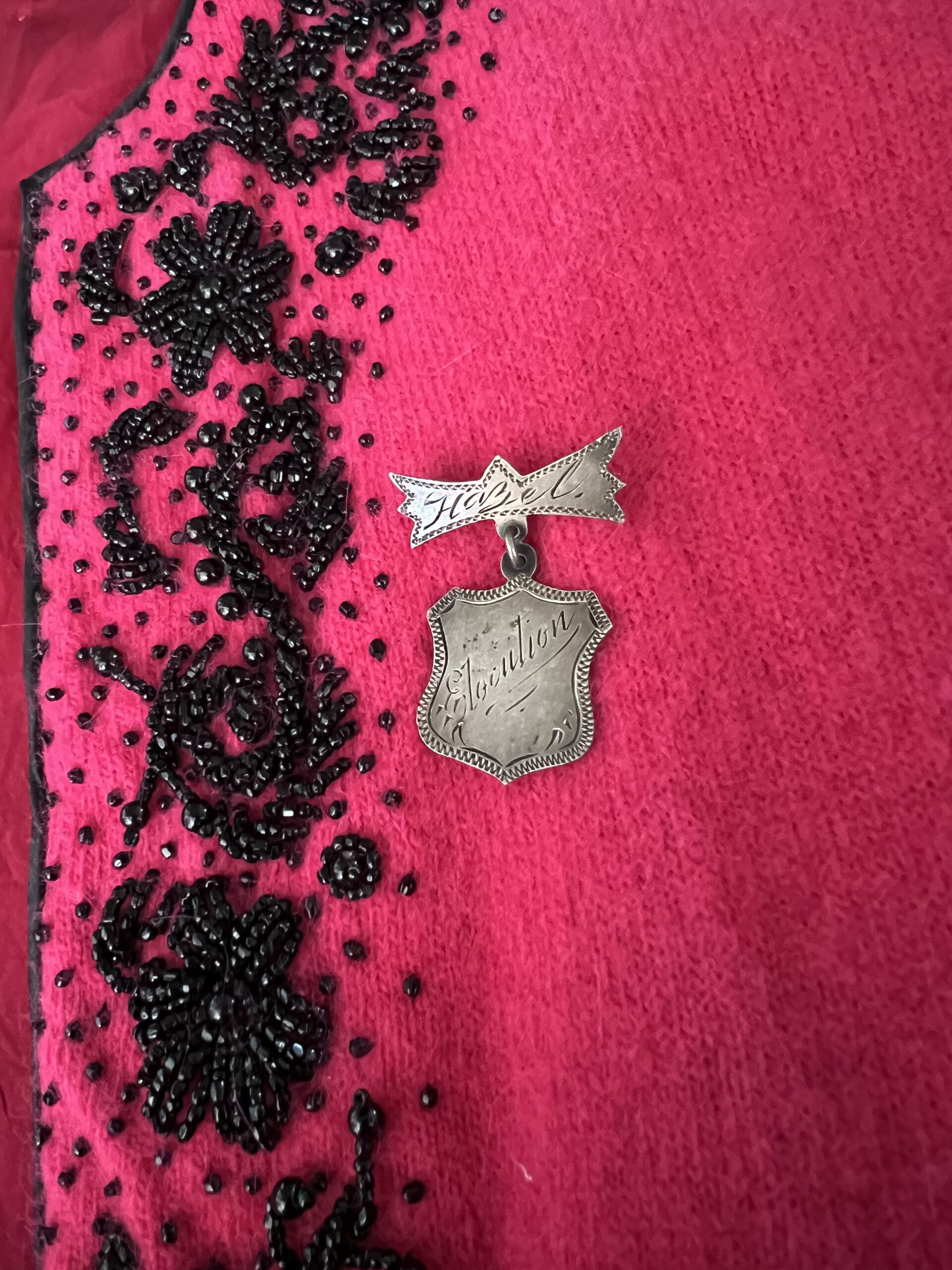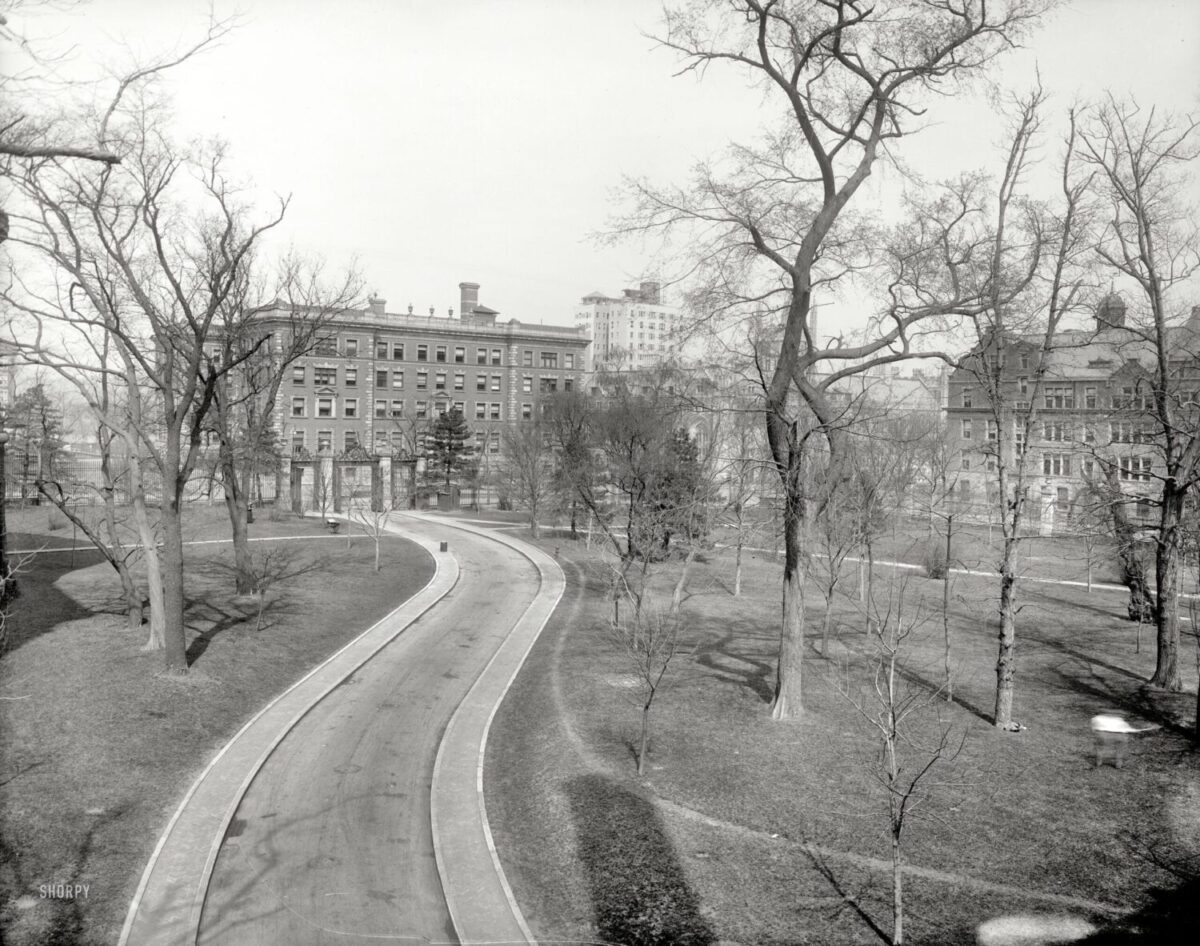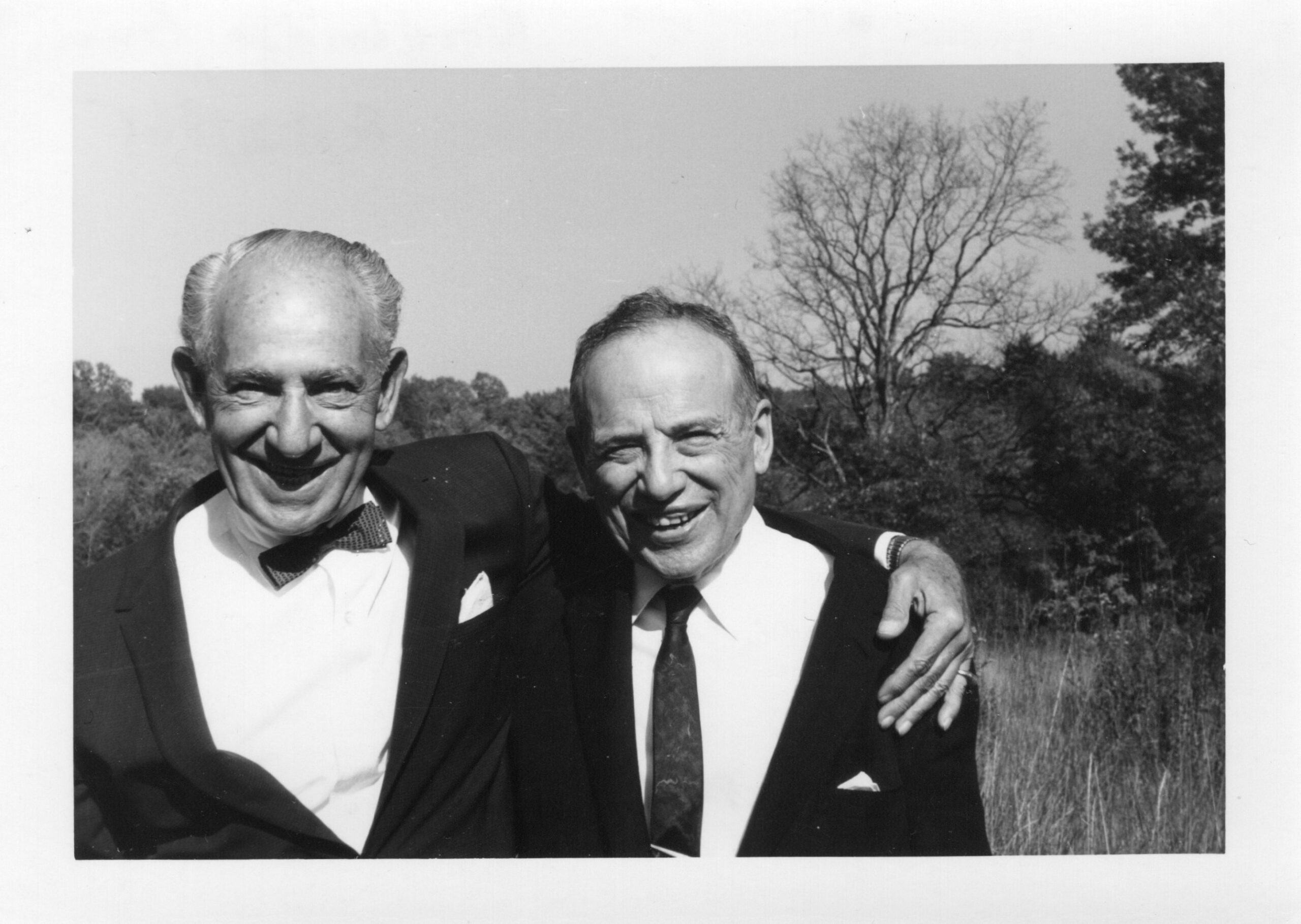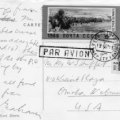Throughout my unforgettable visit to Omaha, Warren Buffett praised my grandfather Benjamin Graham’s generosity effusively, asserting that his mentor not only treated him and others generously, but also “never expected anything in return.” Back home, when I opened my grandfather’s autobiography, Benjamin Graham: The Memoirs of the Dean of Wall Street, I had generosity on my radar. I wanted to take a close look at Ben’s relationship with his father, Isaac Grossbaum. In his “Self-Portrait at Sixty-Three,” published in the Memoirs, Ben Graham wrote in the third person that “as a boy… he could not understand how others, including those who loved him dearly, would so often wound him, with nonchalance or even with malice.” The memories Ben Graham recounted in his Memoirs indicate that “those who loved him dearly” included his closest family members. Was Ben’s father Isaac one of the family members who “would so often wound him?”
In order to answer that question, it’s necessary to understand Isaac’s role in his large extended family. Isaac Grossbaum was the father of three little boys—Leon (age three), Victor (age two), and Ben (age one)—when his own father, Bernard Grossbaum, sent him from his native England to America to open a New York branch of the family business, Grossbaum & Sons. (The New York Grossbaums changed their name to Graham when Ben was twenty.) The family business dealt in china and bric-a-brac, including fine porcelain tableware imported from a factory in Dresden, Austria. Isaac demonstrated a talent for buying and selling these imported wares, and his shop prospered. Isaac then demonstrated his own capacity for generosity:
“[Isaac] had ‘a heart as big as this world’—that was the common verdict—and he showed it by innumerable acts of consideration and financial assistance to his parents and ten brothers and sisters, as well as to others…. In his last years the British branch of the business was proving unsuccessful, and the profits he made in America supported not only ourselves but also our parents, uncles, aunts, and cousins in England—a veritable army.”
Ben Graham explains that Isaac supported this army of relatives “at the cost of enormous labor and constant traveling about the country” to auctions and sales. From a summer trip to England at age seven, Ben retained the touching memory of “my three young aunts with tennis rackets—all the gift of my generous father, as I later found out.” He reveals:
“Of my father I remember very little indeed. This is more regrettable because he was, by all accounts, a marvelous person.”
Ben Graham goes on to recount the “enthusiastic praise” of his father he heard from others: “he was handsome, vivacious, charming and nearly always in a high good humor. He was also an excellent business man, keen-witted, energetic, and unfailingly resourceful.”
Ben’s paternal grandfather Bernard Grossbaum died in London at the age of fifty-six. On receiving the cable announcing his father’s death, Isaac “[burst] into a loud lament.” Isaac’s own health was “already sadly impaired. His color was bad, and we were told he was suffering from a mysterious ailment called ‘yellow jaundice.’” Ben Graham’s mention of his father’s illness when he was five intimates that Isaac had been ill for years. That Isaac worked tirelessly to support his extensive family in England and America while in poor health gives me compassion for how difficult Isaac’s life must have been.
In February of 1903, Ben Graham’s father died of pancreatic cancer. Ben was eight; his brothers Victor and Leon were nine and ten respectively. After Isaac’s death, the New York branch of Grossbaum & Sons lost money and closed. Ben’s mother was forced to give up her home and sell off her personal possessions. With no breadwinner, Dorothy and her three boys depended for support on Dorothy’s older brother Maurice. Ben’s mother never remarried.
Ben Graham, in his Memoirs, repeatedly draws the reader’s attention to the disconnect between how favorably others spoke of his father and how he remembered him:
“In contrast with the frequent praise of others, I find it strange that most of my own memories of my father are on the silly or menacing side. One of his favorite expressions was “he’s a left-handed imitation of a paralyzed gridiron” which I …was supposed to find highly amusing, even though I hadn’t the faintest idea what a gridiron was.”
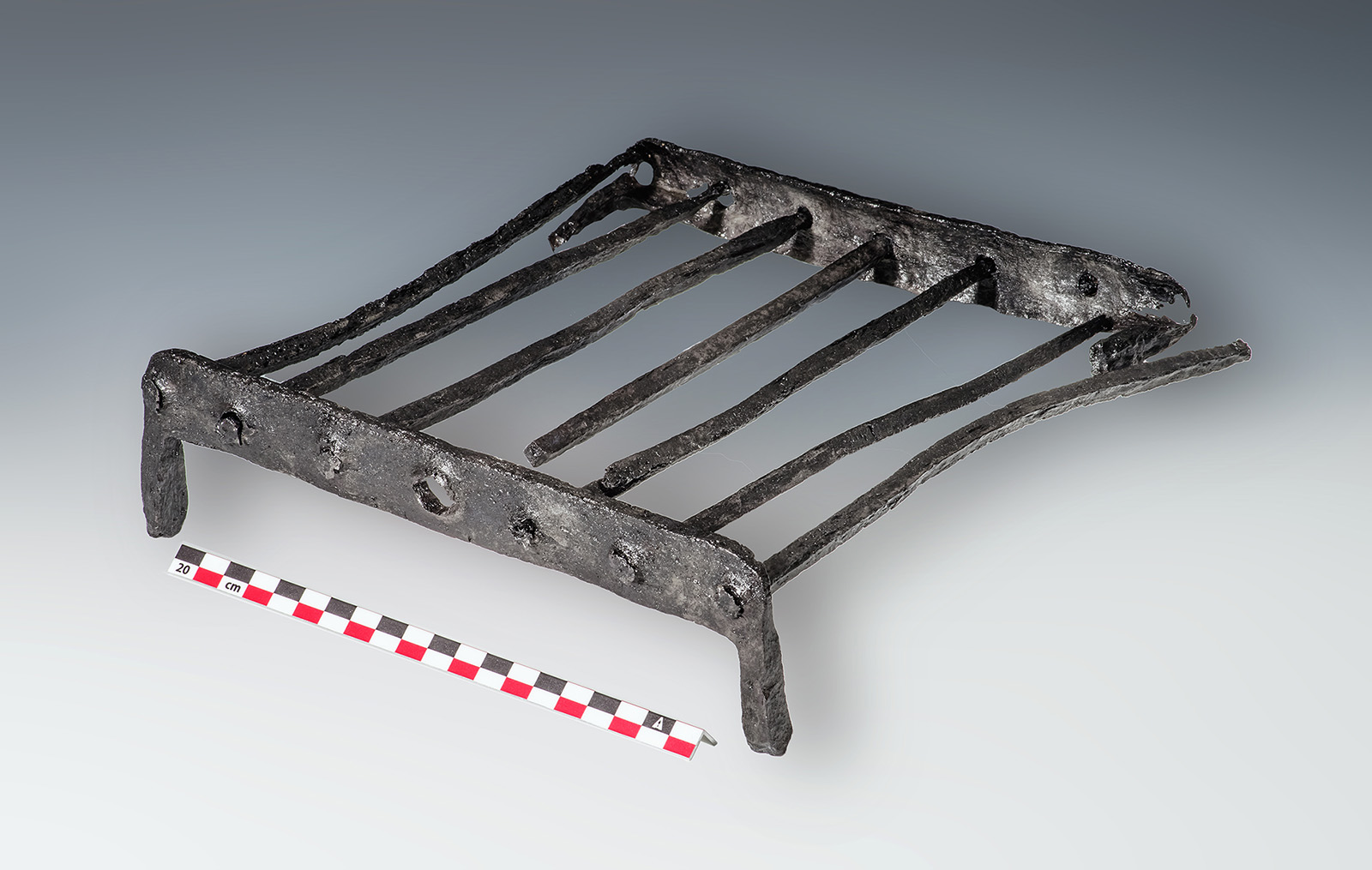
Antique gridiron used for cooking meat and fish over a fire in historic Jamestown, circa 1620.
A gridiron, dear Grandpa, is an iron grate. An American football field, with its grid of lines, was also called a “gridiron”. A violent game in Isaac’s time, football caused gruesome injuries. In 1904, eighteen players died. “Paralyzed gridiron” likely meant a football player whose spinal cord had been severed. “Left-handed imitation” invokes the early 20th century bias that vilified left-handed people as “abnormal” and “perverts.” Isaac’s expression, perhaps of his own coinage—“He’s a left-handed imitation of a paralyzed gridiron”—was tantamount to calling someone a “pervert,” a “cripple,” and a “spaz,” taunts that peppered my own childhood. Ben, a whip-smart boy who grew up to be a polymath, may not have wanted to decode the meaning of that favorite expression of his father’s. Still, young Ben Graham must have picked up on his father’s penchant for mocking others, along with his way of excluding Ben from his jocular denigration.
In the following passage, Ben Graham avoids discussing the personal impact of his father’s death, choosing to lump himself with his brothers:
“We do not miss what we have never really had; perhaps my father’s continual absences on business, and the consequent lack of any feeling of companionship with him, had somehow diminished the impact of his death on his three sons.”
During the years he labored to support both his American and English families, Isaac was absent from his three sons more than he was present. Isaac’s absence per se was a form of wounding—an abandonment that exacerbated his dearth of bonding with Ben.
Ben asserts once again that he does not remember his father’s positive attributes to which others attest, but he does recall Isaac’s menacing aspect:
“…I remember [Isaac saying] expressions such as “I’ll knock you into the middle of next week,” “I’ll thrash you within an inch of your life,” and “I’ll break every bone in your body.” These last two…were directed at my frequently misbehaving brother Victor. Why do I remember these horrendous threats, and not the charming and genuinely amusing things Father must certainly have said?”
Because any child would find these words frightening. Ben loved his brother and feared that his father might carry out one of his threats. Ben no doubt feared that if he transgressed, his father would hurt him. Isaac appears to have created an atmosphere of pervasive fear that overshadowed his “charming” side and wounded his sons.
Ben recounts a few instances of misbehavior and punishment in the Memoirs, all concerning his brothers. When his oldest brother Leon caught an eel on his fishing line at age nine, Leon cut it up in small segments and placed it under napkins on their Sabbath table. Eels are forbidden on Kosher tables, and “Leon was duly punished for his dereliction.” Ben also reports that on their governess’ day off (at a time when Isaac was alive and they could afford servants), the boys walked six miles round trip to see the kiddie train in Central Park and returned after dark. Leon was nine, Victor eight ,and Ben seven. Ben describes what happened next:
“The police had been notified sometime before, and horrible prospects of kidnapping or accidents were frightening Mother and the help out of their wits….Leon and Victor both received sound thrashings, while I—as the youngest and presumably a pliable tool of my brothers—got off virtually scot-free.”
What constituted a “sound thrashing?” Ben Graham does not say.
Parenting has evolved since the early 1900s, yet in 2012 the Brookings Institute found that more than 70% of Americans agreed that “it is sometimes necessary to discipline a child with a good, hard spanking.” Parents of both centuries may not know, or not have known, that frequently spanked children are more likely to develop mental health and behavior problems.
While hitting children may have been the norm, I have the impression that most parents of Isaac’s time did not threaten their child’s life. Ben Graham’s detachment from his father—before and after he died—might have stemmed from Ben’s sense that his father had posed a danger to himself and his brothers. Ben may have felt guilt that his older brothers were punished when he was not, and guilty relief that when the danger to all three boys was gone.
Based on Ben’s reporting, Isaac Grossbaum mostly kept his violent urges in check. Still, Isaac normalized a bigger, stronger male tyrannizing a younger male. His “might makes right” fathering fostered mean-spirited competition among his sons, which I will discuss in a future post. Isaac’s intimidating taunts may have made men seem unsafe, contributing to Ben’s avoidance of close male friendships. Today, to subject a child to threats to a loved one is considered emotional abuse. Hence the answer to my question— did Ben’s father “often wound him, with nonchalance or even with malice?”—is yes.
I find only one story in the Memoirs that illuminates the nature of Ben’s one-on-one relationship with his father. After Ben spent the summer in England with relatives (while Isaac attended auction sales in America), Isaac rejoined his family for the return boat trip from London to New York. Seven-year-old Ben, a charming small-of-stature boy with a head of curly dark hair, became “a favorite of the passengers, who loved to persuade me…to stand up before them, chin high in the air, and recite ‘Oh Captain, My Captain’ with tremulous feeling.” Upon being invited to perform Whitman’s elegy at the Captain’s Dinner, Ben was “in seventh heaven with pride and anticipation.”
His father forbade him that pleasure, asserting that Ben was too young to stay up late and that too much adult attention would do him harm. Ben went to bed in misery. The next morning, he found out “that Father himself had recited a long poem in my stead at the celebration.” Ben got the “painful impression” that “Father had intentionally appropriated my glory to himself.” Isaac could not tolerate seeing Ben take center stage while his own talent went unnoticed. Rather than taking pride in Ben, Isaac was loathe to risk being eclipsed and surpassed by his pint-size son.
Isaac relegating him to bed may have lit a fire in Ben. Ben Graham memorized great tracts of poetry in Latin, Greek, English and French—(I remember Virgil and Omar Khayyam) and often recited apropos lines of verse to everyone present including me, as if competing in a lifelong Meistersinger-like contest of poems instead of songs. Unquestionably, he bested his father at recitation at a thousand chimeric “Captain’s Dinners.” Sad to say, Isaac never appears in the Memoirs as a father who gives Ben encouragement or love.
Ben Graham grew up to embody his father Isaac’s generosity and then some–as a teacher, employer and human being. Ben Graham taught at Columbia for twenty-eight years and for an additional fifteen years without pay at UCLA. Some parents, unconscious of their own childhood wounding (as Ben was, during his child-rearing years), do to their children what their parents did to them. Ben Graham renounced his father’s propensity to threaten his sons and mock other people, choosing instead “to take care never to wound others” and to treat everyone including his children, students and employees (as Warren Buffett attested) with kindness and respect. How remarkable that Ben Graham managed to emulate his father’s noblest quality, master his father’s art of recitation, and counter his father’s verbal cruelty with gentleness and decency. I’m deeply grateful.
